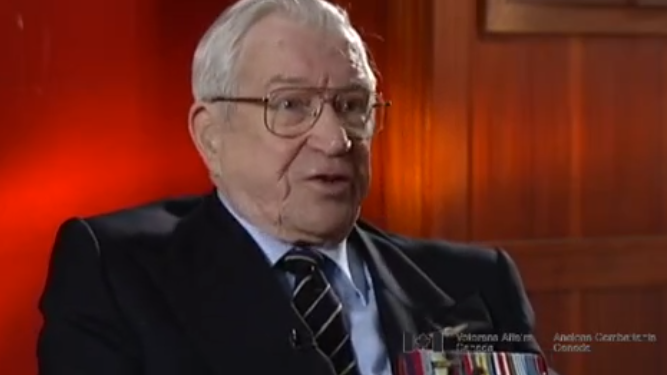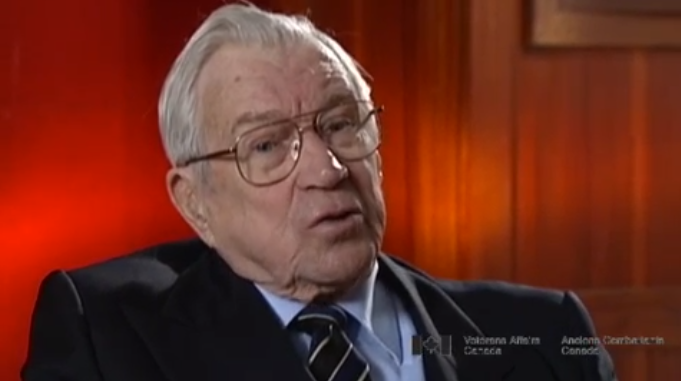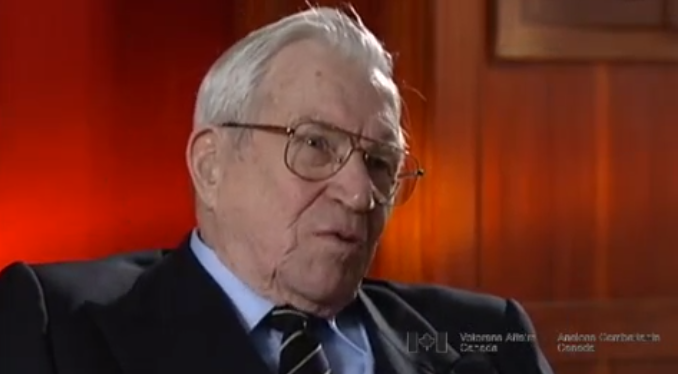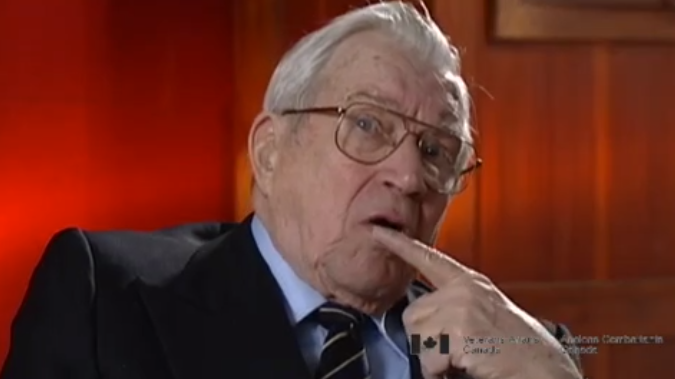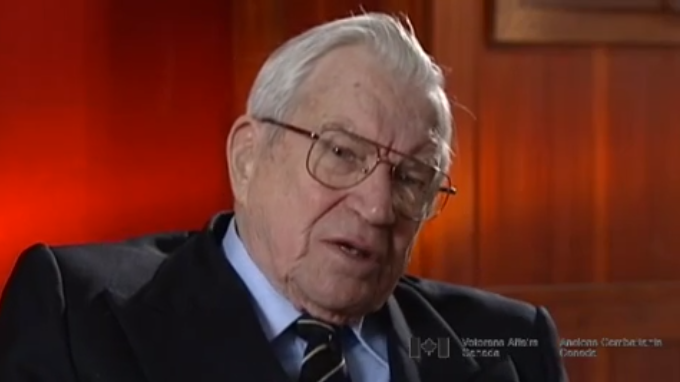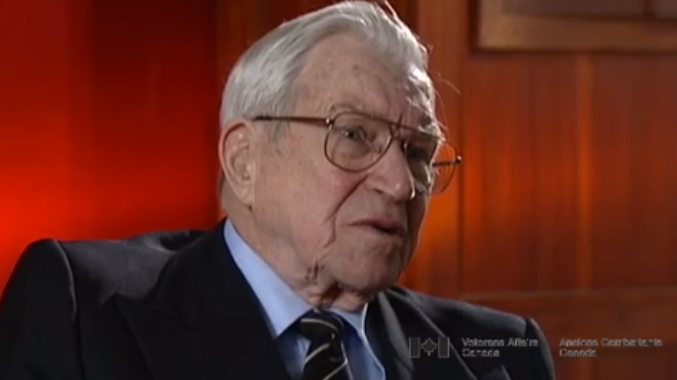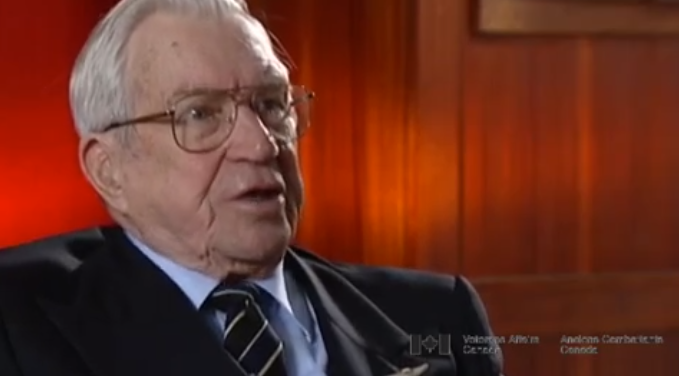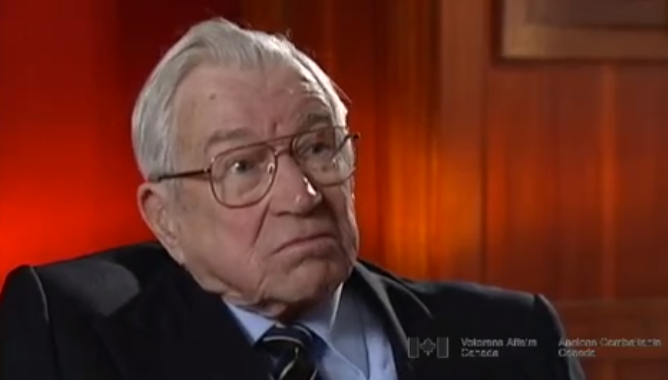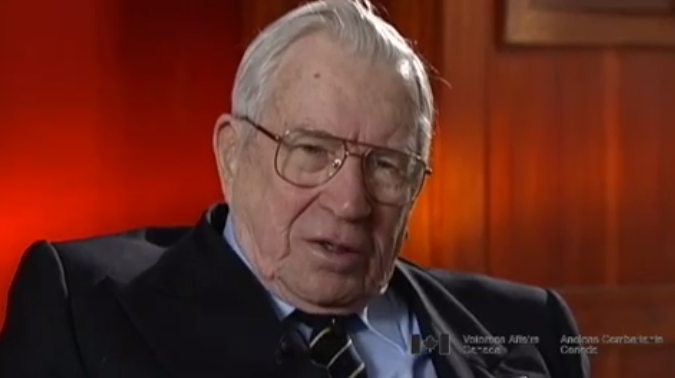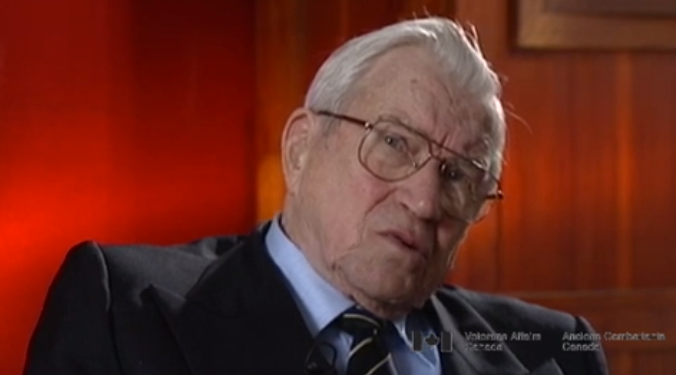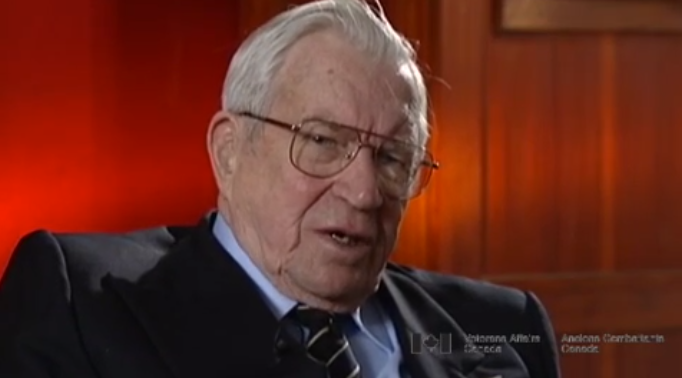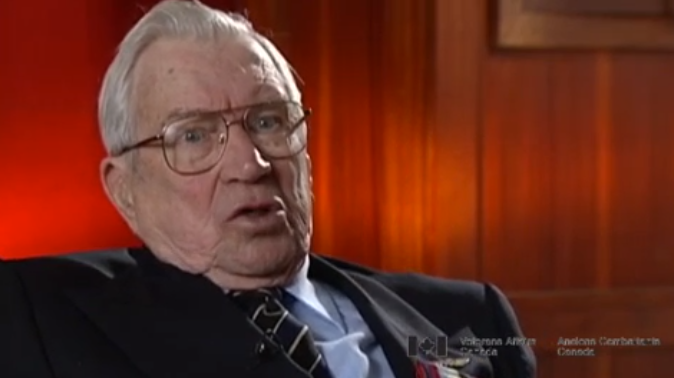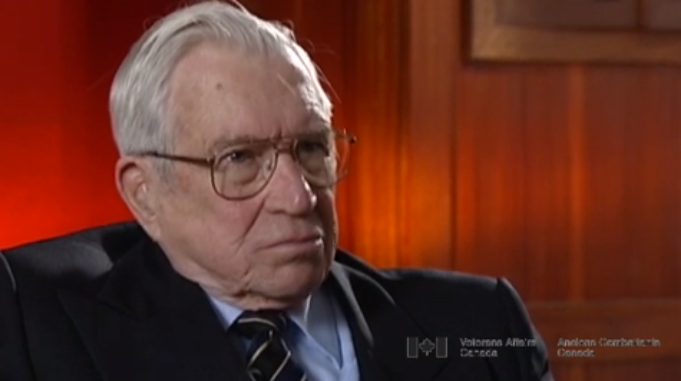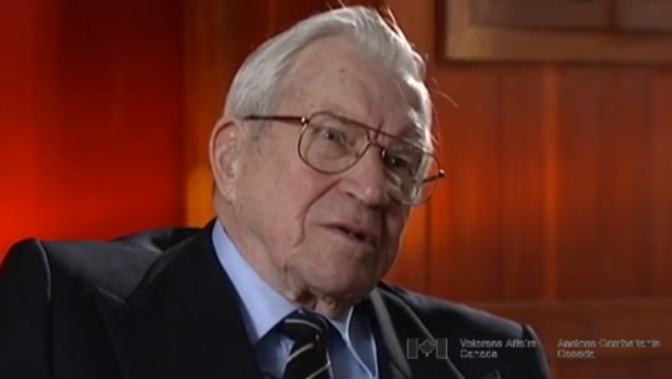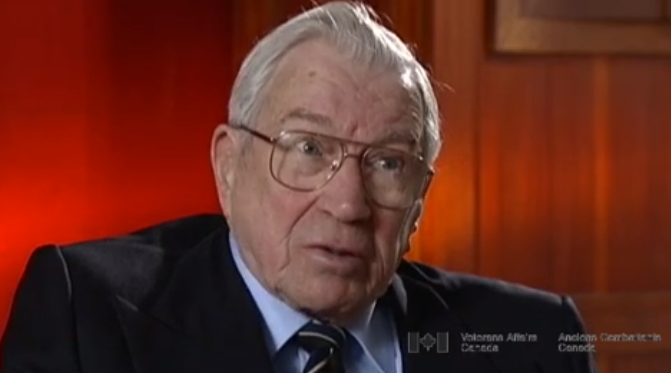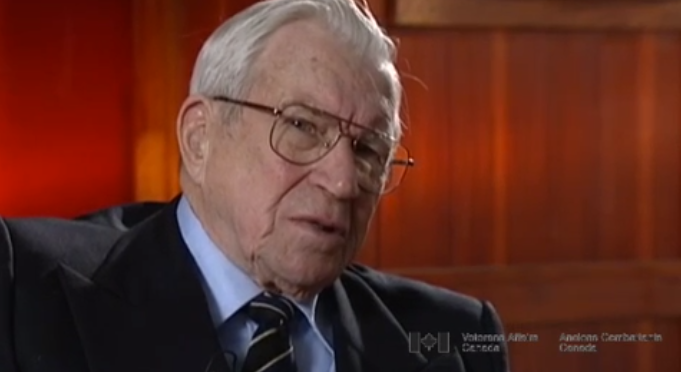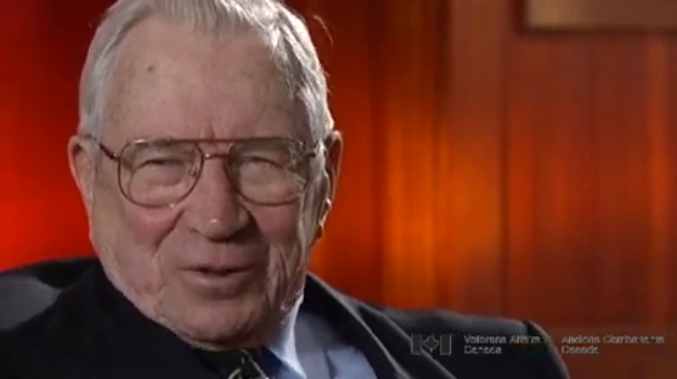Hunting down a U-boat
Heroes Remember
Hunting down a U-boat
Transcript
Men looking through binoculars.
know, it was 80 feet long and umpteen feet wide or something or other, and moving at a certain speed and we assumed it wasU boat swimming underwater.
a U-Boat and we went after it. We ended up, I guess we threw every depth charge we had at this thing. But we never got anyWeapons firing into the water and men running around ship to battle stations.
substantial evidence that we sunk it because you had to have debris or something come up before the Admiralty would credit you with a kill. The Channel is shallow and when we dropped our depth charges, they’d be at a shallow setting. The result was the bottom plates on our own ship, some of them sprung loose and then the sea came in and our canteen was down in the lower part of the ship and it flooded and all the cigarettes got wet. That was a real blow to our morale let me tell you. Everybody smoked in those days so. We never got credit but aShip sinking into the sea.
year or two ago I heard that the Germans reported eventually that a U-Boat had gone missing in that area, at that time, so I presume we got it, I don’t know. It was quite a fight though, it went here and we went after it, it came back, yeah. And HMS Vimy, a British destroyer came up to assist us when it was all over sort of and I remember the captain of the Vimy shouting over to our captain, “Are you sure you weren’t chasing a school of fish, Captain?” Well, the language that our old man used, you know, I’m sorry I can’t repeat it here but...Description
Mr. Bowen describes attacking a U-boat in the English Channel, and how the shallowness of the water resulted in the depth charges also rupturing the bottom plates of his frigate.
Gerald Bowen
Gerald R. Bowen was born in Ottawa, Ontario on October 13, 1925. He attended Lisgard High School, and was a paperboy. His family had prior military experience. His uncle had served in the Air Force and his father in the Army, later becoming an historian with the Department of National Defence. Mr. Bowen enlisted in the Navy where he became a telegrapher, serving aboard a Royal Canadian Navy frigate on convoy duty in the North Atlantic until the war ended. He left the service for a brief time and re-enlisted in the Canadian Army, where he became a paratrooper and a specialist in sabotage. He later served as a peacekeeper in Cyprus. Mr. Bowen’s extensive experience in the Canadian military offers us some very informative and perceptive anecdotes.
Meta Data
- Medium:
- Video
- Owner:
- Veterans Affairs Canada
- Duration:
- 2:33
- Person Interviewed:
- Gerald Bowen
- War, Conflict or Mission:
- Second World War
- Location/Theatre:
- English Channel
- Battle/Campaign:
- Battle of the Atlantic
- Branch:
- Navy
- Rank:
- Ordinary Seaman
- Occupation:
- Wireless Operator
Related Videos
- Date modified:



